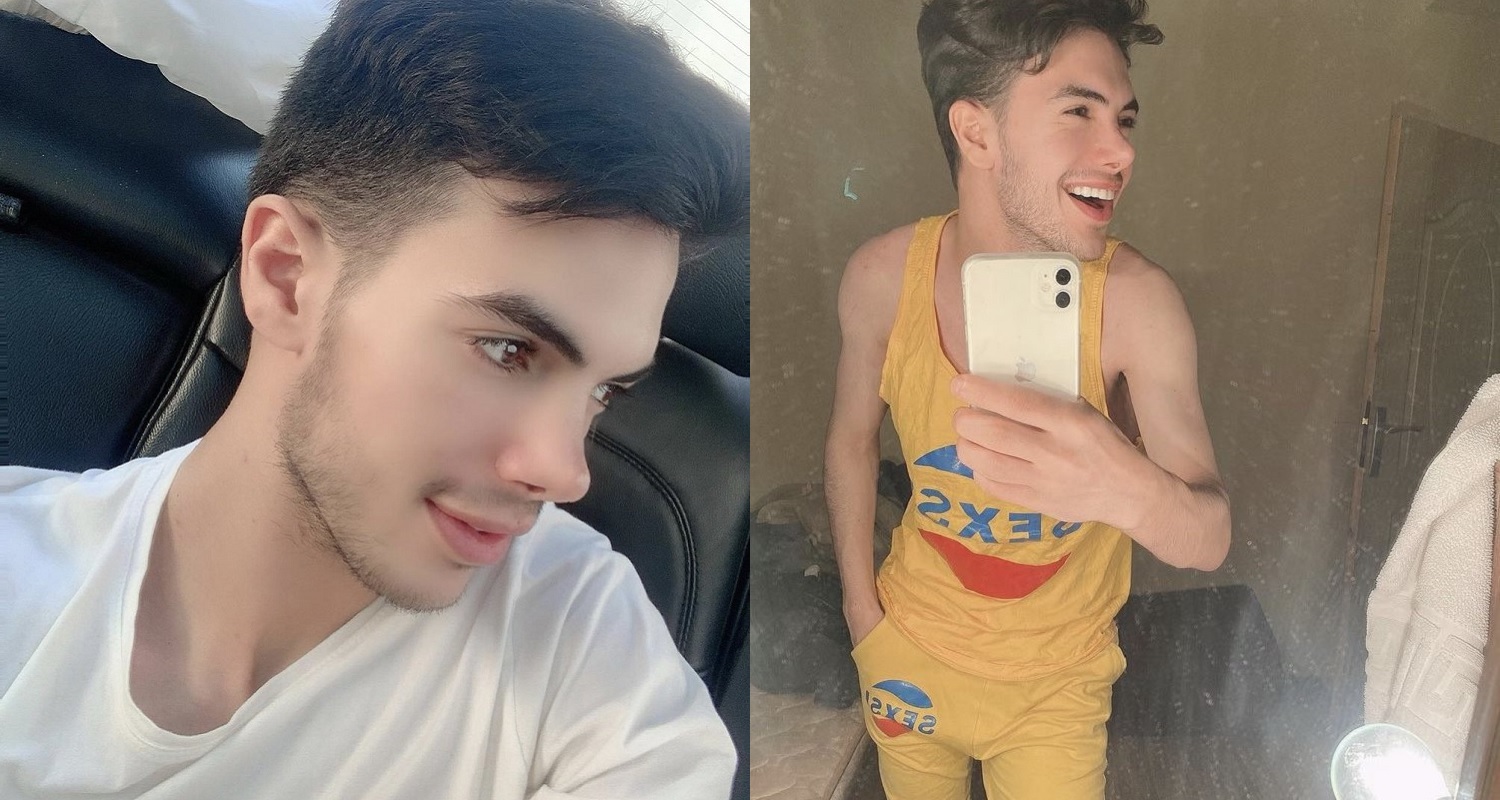Amnesty calls for full investigation into non-binary gay man ‘beheaded by family’ in Iran
There are fears Alireza Fazeli Monfared's death could go "unpunished"

Words by Alastair James; pictures: Twitter / Instagram
Amnesty International UK is calling for a full investigation into the brutal killing of Alireza Fazeli Monfared in Iran earlier this month.
The 20-year-old non-binary gay man was found with his throat cut after being abducted by several male relatives on 4 May. His mother was then told where to find his body.
It’s understood Alireza’s sexuality was discovered by his family after he was exempted from military service because of “sexual depravities.”
In Iran, same-sex relations are illegal under Islamic law, and punishable by imprisonment, lashing and execution.
“He wanted to live a free life”
The human rights organisation Amnesty International says an investigation should be carried out by the Iranian authorities. In a video posted online, it demanded justice for the young man.
In a six-page briefing, released on International Day Against Homophobia, Biphobia, Intersex-phobia and Transphobia (17 May), the charity said: “Under international law, the authorities’ failure to prevent, investigate, sanction and provide reparations for acts of killings, including hate-related killings of LGBTI people, would constitute in and of itself a violation of the right to life by the State, even when those who commit the killings are non-state actors.”
On International Day Against Homophobia, Transphobia and Biphobia, we demand justice for 20-year-old Alireza. No one should lose their lives because of their gender expression & sexual orientation.
Today, and everyday, we stand in support of LGBTI people everywhere. #IDAHOBIT pic.twitter.com/bdScvu9Phj
— Amnesty International (@amnesty) May 17, 2021
Alireza’s partner, Khalil Abiat who’s based in Turkey, says Alireza had been subjected to years of homophobic harassment from members of his family, but that it wasn’t until his military exemption card was discovered that his family acted.
Abiat, who’s spoken to Amnesty, is reported to have said that Alireza thought the document had been opened before him, and that his family had potentially seen his exemption on the basis of homosexuality.
Abiat told Amnesty: “On Sunday (2 May) Alireza called me. He was very happy and said that his exemption card had finally arrived. But he said: ‘I think the envelope has been opened. When I was opening it, I felt that it had been opened [before me] and resealed.’”
“He said that he had many dreams. He wanted to live a free life, wear the clothes and make-up that he wanted. He wanted to do modelling and become a make-up artist.”
Fazeli Monfared had hoped to escape Iran just days after the date he was murdered.
The organisation understands that no one has yet been arrested for Alireza’s murder, although there have been reports previously stating three people, including two of Alireza’s cousins, had been arrested and a case against them opened.

“His murder could go unpunished.”
The document also details how the Iranian authorities criminalise same-sex relations, including the use of the death penalty, and banning clothing, hairstyles and other forms of gender expression that do not conform to the country’s strict binary gender “norms”.
Amnesty International’s Middle East and North Africa Deputy Director, Diana Eltahawy, says Alireza’s case is a reminder of the need to appeal such barbaric laws.
“These laws foster a permissive climate for homophobic and transphobic hate crimes and legitimise violence, including deadly attacks against people on the grounds of their real or perceived sexual orientation or gender identity,” Eltahawy said.
“The Iranian authorities’ brazen disregard for the lives and safety of LGBTI people and the prevailing climate of impunity for such crimes, raise the alarm that his murder could go unpunished.
“We urge the Iranian authorities to conduct a prompt, independent, impartial and effective investigation into Alireza Fazeli Monfared’s murder and take urgent action to protect LGBTI people from discrimination, harassment, assaults and other abuses.”
Following Alireza’s murder, people have been protesting by walking the streets with Pride flags over their shoulders.
Iran is currently one of 68 countries, according to the Human Rights Watch, that criminalise same-sex relationships
